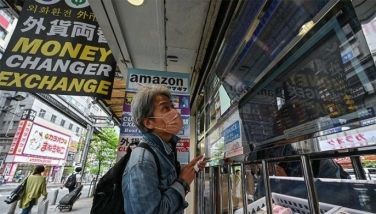Plastic makers slam safeguards on HDPE raw materials
MANILA, Philippines — The Philippine Plastics Industry Association Inc. (PPIA) is appalled by the recommendation of the Tariff Commission (TC) to grant the request of a local company to impose safeguards on duties on high-density polyethylene (HDPE) pellets and granules imports as it will increase the cost of packaging and plastic products in the country.
“We implore the Tariff Commission to reconsider their position and the DTI (Department of Trade and Industry) to not impose the safeguard duties on HDPE resin,” the PPIA said in a statement yesterday.
“To extend protection to benefit a sole producer where in, at the expense of the downstream manufacturing industry dominated by MSMEs and employing hundreds and thousands of Filipinos, increase the cost of packaging materials and plastic products, and add to the increasing inflation amid the current crisis faced by our country,” the group said.
The PPIA said the move would result in tariff distortion wherein cheaper imported finished products would continue to proliferate the market.
In its final report on the formal investigation on the imposition of safeguard measures against the importation of HDPE pellets and granules from various countries, the TC recommended an ad valorem safeguard duty of two percent on importations of HDPE pellets and granules for a period of three years.
“Having established the existence of a causal link between the imminent threat of serious injury to the local HDPE industry in the near future and increased imports of HDPE, the Commission hereby recommends the application of the appropriate definitive general safeguard measure on importations of HDPE to prevent the imminent occurrence of serious injury to the Philippine HDPE industry,” the TC said in its final report.
The investigation was a result of a petition filed by JG Summit Olefins Corp. (JGSCO), the country’s sole producer of HDPE pellets and granules.
The rate of duty of two percent will allow the domestic industry to adjust its selling prices to a level that will allow full recovery of its cost of production.
Under the Safeguard Measures Act, the government may impose tariffs on imported commodities if a surge in imports of such products cause serious injury to the domestic industry.
Figures from the TC’s final report, showed that in January to June 2021, imports of HDPE peaked at 61,410 metric tons (MT).
“When compared with the volume of imports logged in 2018 (40,404 MT), the 2021 first semester figure was significantly higher by 52 percent, the TC said, adding that the 2021 figure was also 46 percent higher than the initial half-year import volume in 2015 of 42,130 MT.
The TC said while HDPE imports by importers/traders slowed down in the second semester of 2021 from 61,410 MT to 52,846 MT, the whole year growth rate of imports of HDPE into the Philippines in 2021 was a significant 26 percent greater than the levels recorded in 2018, indicating a continuation of the increasing imports detected in the first semester of last year.
Similarly, importations during the first four months of 2022 reached 41,328 MT, equivalent to 67 percent of the importations recorded during the first semester of 2021.
“Thus, imports in 2022 have continued to enter into the country at the increased levels recorded in 2021,”the TC said.
The PPIA claimed that the findings in the TC’s investigation report are not consistent with the facts presented during the hearings and submitted position papers.
“The increased imports during the period of investigation is attributed to the lack of domestic supply and operational shutdowns resulting from the expansion of JGSOC, and the increased demand for products that they do not produce,” the PPIA said.
The group said it is wrong to ascertain that the locally produced HDPE using its unimodal technology would produce “like” products compared to bimodal production systems that make the material stronger.
“To grant safeguards for a period of three years to benefit a single entity for the “imminent occurrence of serious injury” despite clear evidence of posting a healthy net income during the investigation period and embarking on expansion programs is not fair to the downstream industry who are expected to suffer from any decision favoring the request,” the PPIA said.
- Latest
- Trending




























